Managing Director/Chief Executive officer, Development Bank of Nigeria, Dr. Tony Okpanachi, on the sidelines of the ongoing International Monetary Fund (IMF)/World Bank Spring Meetings in Washington DC, speaks with Nume Ekeghe on the impact of the ongoing tariffs war on development financing, economic reforms in Nigeria and job creation. Excerpts:
Tony Okpanachi: DBN Has Disbursed Over N1.1trn to SMEs
Managing Director/Chief Executive officer, Development Bank of Nigeria, Dr. Tony Okpanachi, on the sidelines of the ongoing International Monetary Fund (IMF)/World Bank Spring Meetings in Washington DC, speaks with Nume Ekeghe on the impact of the ongoing tariffs war on development financing, economic reforms in Nigeria and job creation. Excerpts:
In light of global uncertainties, what is the hope for development banks?
Well, it’s quite an interesting time for us, and that is now where the role of the Development Bank of Nigeria (DBN) becomes very critical. Why? Because there are so many uncertainties, and access to finance is a major issue for micro, small, and medium enterprises. This is a time when the interventionist role is very important. That means we need to begin to provide long-term capital for small businesses and entrepreneurs so they can bring out their entrepreneurial skills, contribute their own impact, and create jobs. If you remember, this particular International Monetary Fund (IMF)/World Bank Spring Meeting is focused on job creation, which is key. So, putting this into context in Nigeria, considering the high level of inflation, which is also tied to high unemployment and a youthful population, this is the time to really provide access to finance. People need to find alternative ways of creating employment for themselves instead of relying solely on white-collar jobs.
How are you partnering with other development banks like the Bank of Industry (BOI), the Bank of Agriculture as well as commercial banks, to overcome the challenge of access to finance by businesses?
All financial institutions have different roles. Among the Development Finance Institutions (DFIs) in Nigeria,the likes of BOI, Bank of Agriculture, we all have different mandates, but the ultimate goal is to impact the economy. And in impacting the economy we would have to work with financial institutions. At DBN, for example, we partner with financial institutions. We have about 79 partners across Nigeria that we lend through. We not only provide funds from DBN but also catalyse their own funding to provide access to finance. Because, no matter how great your idea is, if you don’t have the financing, it remains an idea in the air. We complement what the financial institutions are doing. As DFIs, we are not competing with financial institutions; we are complementing what they are doing and we also provide longer-tenor funding, patient capital for businesses to stabilise before repaying loans. The second thing I need to draw attention to is that, coming to meetings like this, we also try to mobilise international capital from other international organisations. While we pursue domestic resource mobilisation, we also know that there is also international financing that we can access through institutions like DBN. Private institutions may not have access to such concessional financing, but DFIs like DBN can catalyse that. So, we work in different directions, in collaboration with local DFIs and financial institutions, both public and private we believe we have and can make the rightful impact in the country.
You mentioned patient capital, knowing that Nigeria has a youthful population, what mechanisms is the DBN putting in place to enhance finance for the younger demographics?
There are two sides: One is equity, which is investing in their businesses long-term and taking risk. At DBN, we are working on providing that vehicle so we can take stakes in startup businesses. Secondly, we provide longer-tenor funds. For example, we offer up to 10-year loans. That’s patient enough for businesses to run sustainably. Apart from finance, we focus on capacity building to make them have access to finance because if businesses lack the knowledge or preparation, they may not be bankable. We provide technical assistance to ensure they are equipped and then provide the platform where they can access this finance. And then make sure this finance is not the type that chokes them. We are also working with partners in sectors like green and climate financing. For example, with KfW, we have a specific credit line. DBN is the first direct access entity accredited by the Green Climate Fund (GCF) in Nigeria. This helps us channel targeted financing to specific sectors that these international partners have an interest in. These are the things we put together to provide the youthful population access to finances. and demographics, including youth.
Given the global uncertainties, what is the message you are getting from your partners? Are you getting a lukewarm attitude and also the current economic stance, how has it affected loan repayment?
At the international level, our partners are excited about developments in Nigeria. They see the ongoing reforms and want to support with more innovative tools like de-risking instruments and guarantees rather than just direct financing. Locally, however because of high interest rates and macroeconomic issues have led to rising non-performing loans (NPLs) which is a reflection of the macro. It’s not yet a crisis, but it’s a reflection of the environment. Financial institutions must reinforce their risk management. Globally, we see tensions like tariffs and trade barriers, especially with U.S. policy. Fortunately, our major export crude oil and that is excluded from many of those tariffs, so the direct impact is limited.
Still in line on tariffs and trade wars, one of the key messages at this IMF/World Bank meeting is that Africa isn’t as heavily impacted by tradeoffs; however, for inclusive growth in the continent, intra-African trade is encouraged. What are you offering SMEs to help them trade across Africa?
First, we focus on capacity building. To export, your product quality must meet international standards, even within Africa. There’s no such thing as an “African standard”; everyone wants globally competitive quality. We also provide access to them so that they can explore, export and take time to be able to get their receivables back. Then, we expose SMEs to opportunities across Africa beyond just Europe. They need to know their products are needed in neighboring African countries too. So, education and awareness are key.
What are you doing to ensure DBN’s long-term financial sustainability? Also, how are you using technology to expand your reach?
For us to finance sustainably, we must be financially sustainable ourselves. That’s why we offer market-conforming pricing, ensure business margins are sustainable, and innovate in our product design. We raise funds in a way that enables us to lend sustainably while meeting our development mandate. If you check our financials which we’ll release after our Annual General Meeting (AGM), you’ll see DBN has been consistently financially sound. In terms of technology, our entire engagement process with financial partners is automated. You can access DBN services online. Disbursements are electronic. We use tech for capacity building to reach both SMEs and financial institutions. As a wholesale DFI without branch networks, technology is essential and we ensure to keep revamping the technological advantage we have.
What are your thoughts on economic reforms in Nigeria?
These are necessary reforms, the results are showing, yes we are not there yet, but the trajectory is positive. We are seeing the right movement. The CBN is shifting away from development finance, and DBN is a partner ready to take on that role. We’re signaling our readiness to take wholesale loans from CBN and other interventions as that is our core mandate. I believe we would have conversations about the framework to make this happen not just for DBN, but for other DFIs would take on that role with CBN providing support.
Can you take us through DBN’s customer base and how much loans have you given out so far?
Since starting operations in 2017, we have disbursed over N1.1 trillion through financial institutions. We currently partner with 79 financial institutions made up of commercial banks, microfinance banks, mortgage banks, and others covering all of Nigeria. So far, we have cumulatively done loans to over 711,000 Micro Small and Medium Enterprises (MSMEs) have received loans through DBN partners. This has led to almost 1.2 million jobs created. We focus on developmental impact. Something worth noting is that over 80 per cent of our loan recipients by number are women-owned businesses. We are also focusing on youth-owned businesses and disadvantaged parts of the country where we have challenging environment and regions like the Northeast.
What’s your key takeaway from the IMF/World Bank meetings, walk us through your consultations with partners and what are you expecting in terms of development financing impact?
We’ve had several bilateral meetings with the World Bank, KfW, AfDB, and others. The conversations are positive. We’re working to mobilise more international financing and we are very positive in terms of that. A big part of the discussions is job creation and how we can collectively deliver financing solutions that can drive employment and long-term economic impact. And beyond that, we have seen an impactful investors forum. Generally, these meetings have been very useful and fruitful.
Well, it’s quite an interesting time for us, and that is now where the role of the Development Bank of Nigeria (DBN) becomes very critical. Why? Because there are so many uncertainties, and access to finance is a major issue for micro, small, and medium enterprises. This is a time when the interventionist role is very important. That means we need to begin to provide long-term capital for small businesses and entrepreneurs so they can bring out their entrepreneurial skills, contribute their own impact, and create jobs. If you remember, this particular International Monetary Fund (IMF)/World Bank Spring Meeting is focused on job creation, which is key. So, putting this into context in Nigeria, considering the high level of inflation, which is also tied to high unemployment and a youthful population, this is the time to really provide access to finance. People need to find alternative ways of creating employment for themselves instead of relying solely on white-collar jobs.
How are you partnering with other development banks like the Bank of Industry (BOI), the Bank of Agriculture as well as commercial banks, to overcome the challenge of access to finance by businesses?
All financial institutions have different roles. Among the Development Finance Institutions (DFIs) in Nigeria,the likes of BOI, Bank of Agriculture, we all have different mandates, but the ultimate goal is to impact the economy. And in impacting the economy we would have to work with financial institutions. At DBN, for example, we partner with financial institutions. We have about 79 partners across Nigeria that we lend through. We not only provide funds from DBN but also catalyse their own funding to provide access to finance. Because, no matter how great your idea is, if you don’t have the financing, it remains an idea in the air. We complement what the financial institutions are doing. As DFIs, we are not competing with financial institutions; we are complementing what they are doing and we also provide longer-tenor funding, patient capital for businesses to stabilise before repaying loans. The second thing I need to draw attention to is that, coming to meetings like this, we also try to mobilise international capital from other international organisations. While we pursue domestic resource mobilisation, we also know that there is also international financing that we can access through institutions like DBN. Private institutions may not have access to such concessional financing, but DFIs like DBN can catalyse that. So, we work in different directions, in collaboration with local DFIs and financial institutions, both public and private we believe we have and can make the rightful impact in the country.
You mentioned patient capital, knowing that Nigeria has a youthful population, what mechanisms is the DBN putting in place to enhance finance for the younger demographics?
There are two sides: One is equity, which is investing in their businesses long-term and taking risk. At DBN, we are working on providing that vehicle so we can take stakes in startup businesses. Secondly, we provide longer-tenor funds. For example, we offer up to 10-year loans. That’s patient enough for businesses to run sustainably. Apart from finance, we focus on capacity building to make them have access to finance because if businesses lack the knowledge or preparation, they may not be bankable. We provide technical assistance to ensure they are equipped and then provide the platform where they can access this finance. And then make sure this finance is not the type that chokes them. We are also working with partners in sectors like green and climate financing. For example, with KfW, we have a specific credit line. DBN is the first direct access entity accredited by the Green Climate Fund (GCF) in Nigeria. This helps us channel targeted financing to specific sectors that these international partners have an interest in. These are the things we put together to provide the youthful population access to finances. and demographics, including youth.
Given the global uncertainties, what is the message you are getting from your partners? Are you getting a lukewarm attitude and also the current economic stance, how has it affected loan repayment?
At the international level, our partners are excited about developments in Nigeria. They see the ongoing reforms and want to support with more innovative tools like de-risking instruments and guarantees rather than just direct financing. Locally, however because of high interest rates and macroeconomic issues have led to rising non-performing loans (NPLs) which is a reflection of the macro. It’s not yet a crisis, but it’s a reflection of the environment. Financial institutions must reinforce their risk management. Globally, we see tensions like tariffs and trade barriers, especially with U.S. policy. Fortunately, our major export crude oil and that is excluded from many of those tariffs, so the direct impact is limited.
Still in line on tariffs and trade wars, one of the key messages at this IMF/World Bank meeting is that Africa isn’t as heavily impacted by tradeoffs; however, for inclusive growth in the continent, intra-African trade is encouraged. What are you offering SMEs to help them trade across Africa?
First, we focus on capacity building. To export, your product quality must meet international standards, even within Africa. There’s no such thing as an “African standard”; everyone wants globally competitive quality. We also provide access to them so that they can explore, export and take time to be able to get their receivables back. Then, we expose SMEs to opportunities across Africa beyond just Europe. They need to know their products are needed in neighboring African countries too. So, education and awareness are key.
What are you doing to ensure DBN’s long-term financial sustainability? Also, how are you using technology to expand your reach?
For us to finance sustainably, we must be financially sustainable ourselves. That’s why we offer market-conforming pricing, ensure business margins are sustainable, and innovate in our product design. We raise funds in a way that enables us to lend sustainably while meeting our development mandate. If you check our financials which we’ll release after our Annual General Meeting (AGM), you’ll see DBN has been consistently financially sound. In terms of technology, our entire engagement process with financial partners is automated. You can access DBN services online. Disbursements are electronic. We use tech for capacity building to reach both SMEs and financial institutions. As a wholesale DFI without branch networks, technology is essential and we ensure to keep revamping the technological advantage we have.
What are your thoughts on economic reforms in Nigeria?
These are necessary reforms, the results are showing, yes we are not there yet, but the trajectory is positive. We are seeing the right movement. The CBN is shifting away from development finance, and DBN is a partner ready to take on that role. We’re signaling our readiness to take wholesale loans from CBN and other interventions as that is our core mandate. I believe we would have conversations about the framework to make this happen not just for DBN, but for other DFIs would take on that role with CBN providing support.
Can you take us through DBN’s customer base and how much loans have you given out so far?
Since starting operations in 2017, we have disbursed over N1.1 trillion through financial institutions. We currently partner with 79 financial institutions made up of commercial banks, microfinance banks, mortgage banks, and others covering all of Nigeria. So far, we have cumulatively done loans to over 711,000 Micro Small and Medium Enterprises (MSMEs) have received loans through DBN partners. This has led to almost 1.2 million jobs created. We focus on developmental impact. Something worth noting is that over 80 per cent of our loan recipients by number are women-owned businesses. We are also focusing on youth-owned businesses and disadvantaged parts of the country where we have challenging environment and regions like the Northeast.
What’s your key takeaway from the IMF/World Bank meetings, walk us through your consultations with partners and what are you expecting in terms of development financing impact?
We’ve had several bilateral meetings with the World Bank, KfW, AfDB, and others. The conversations are positive. We’re working to mobilise more international financing and we are very positive in terms of that. A big part of the discussions is job creation and how we can collectively deliver financing solutions that can drive employment and long-term economic impact. And beyond that, we have seen an impactful investors forum. Generally, these meetings have been very useful and fruitful.



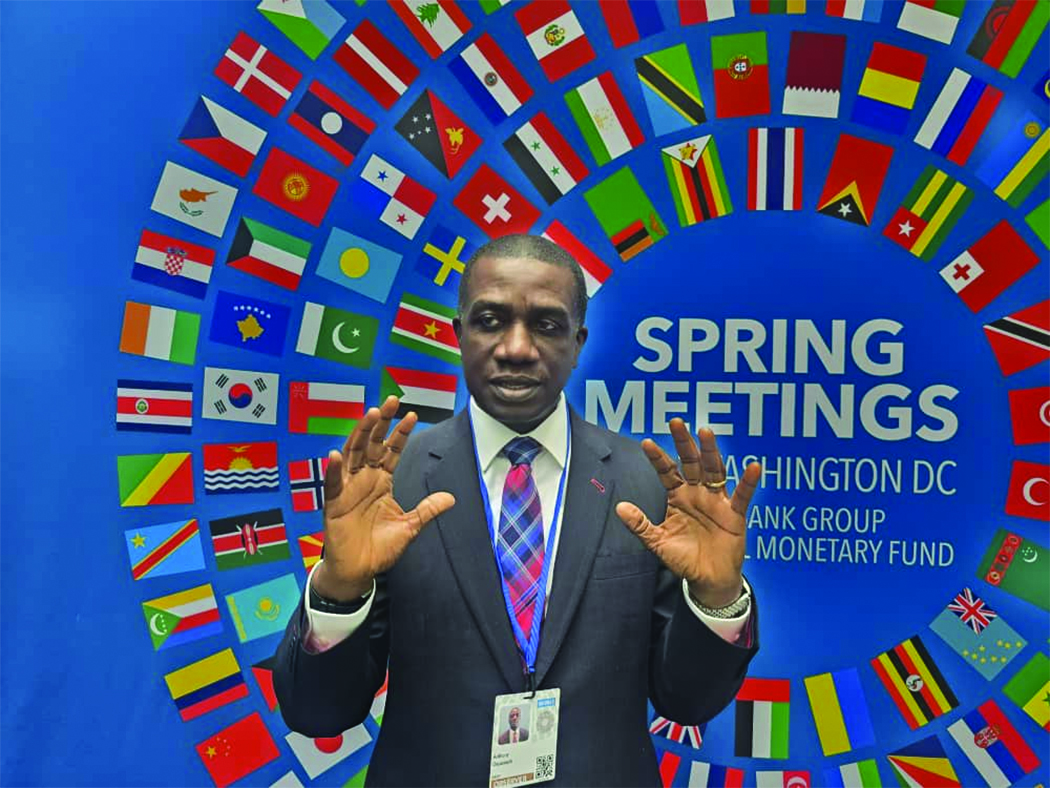

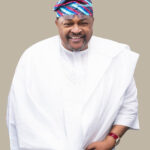

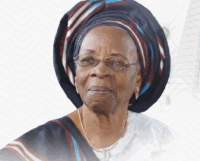
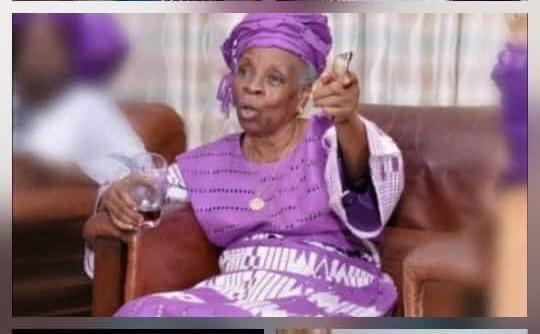

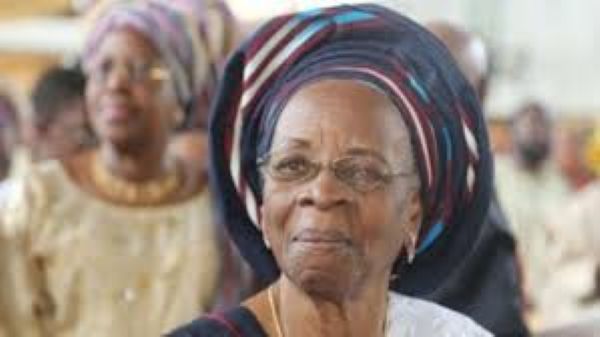
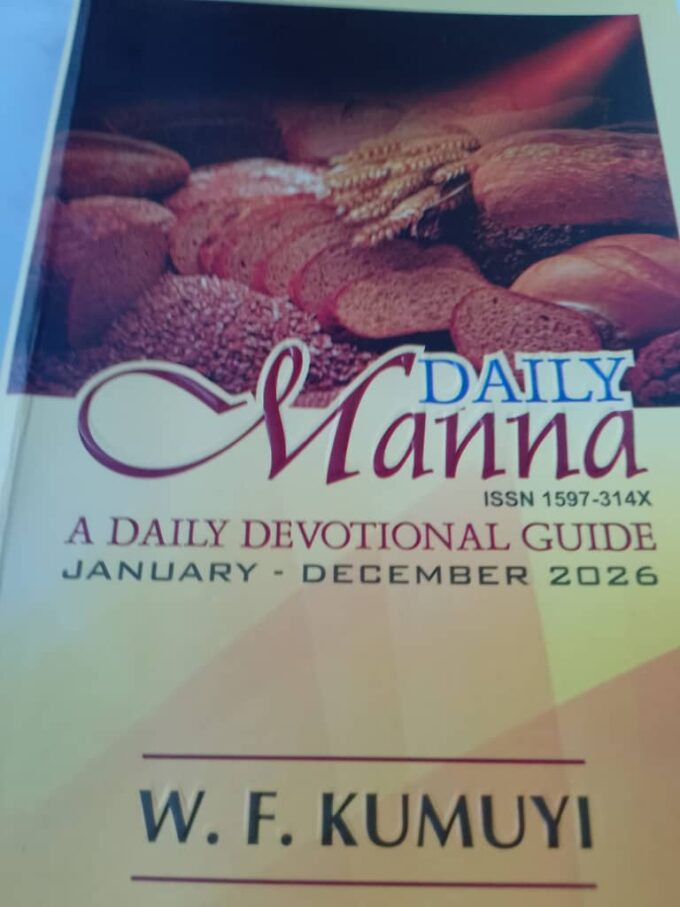


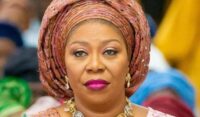
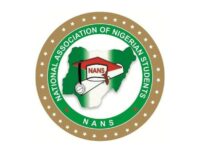

Leave a comment